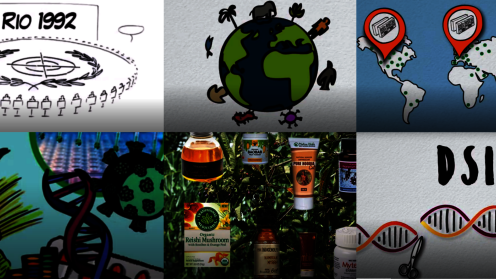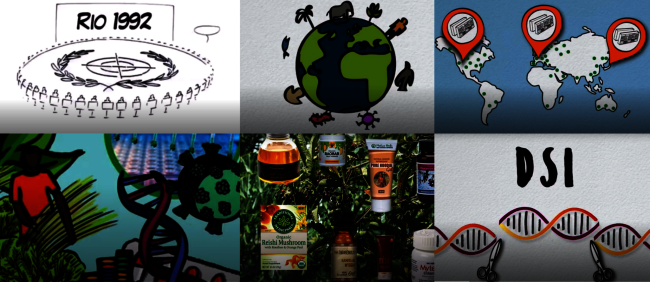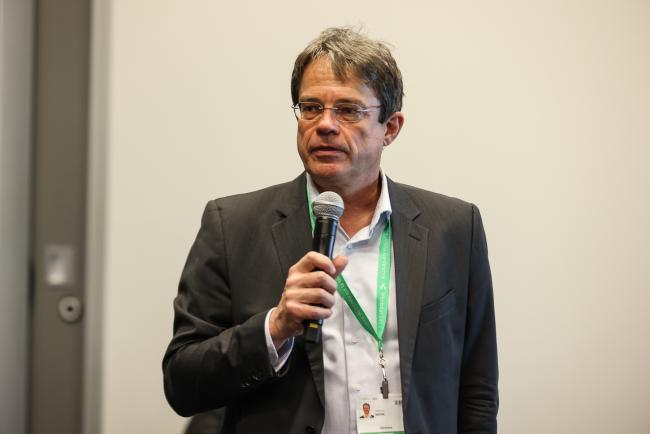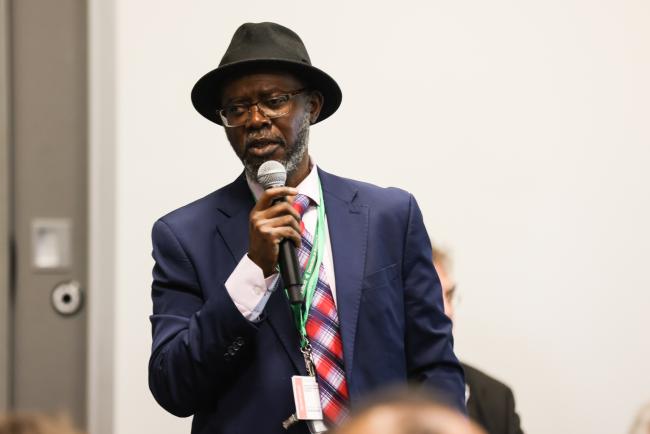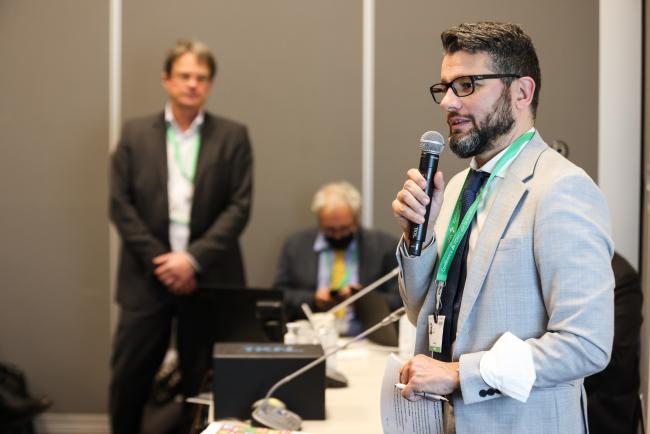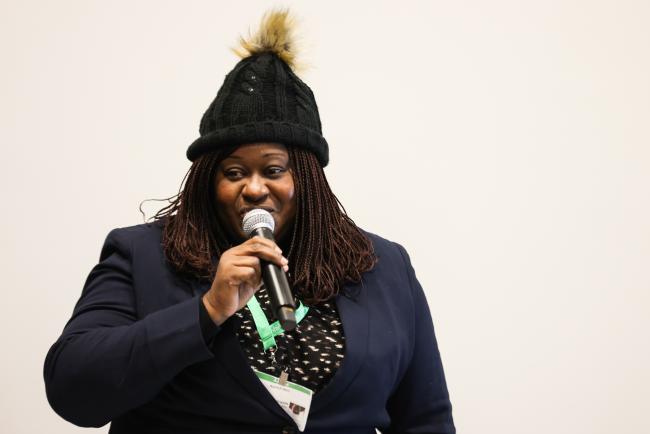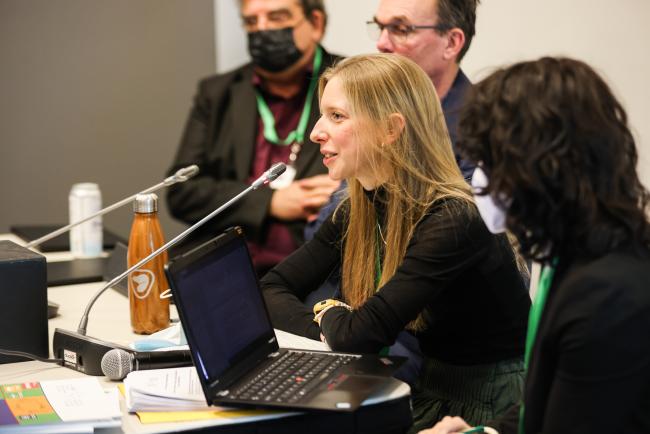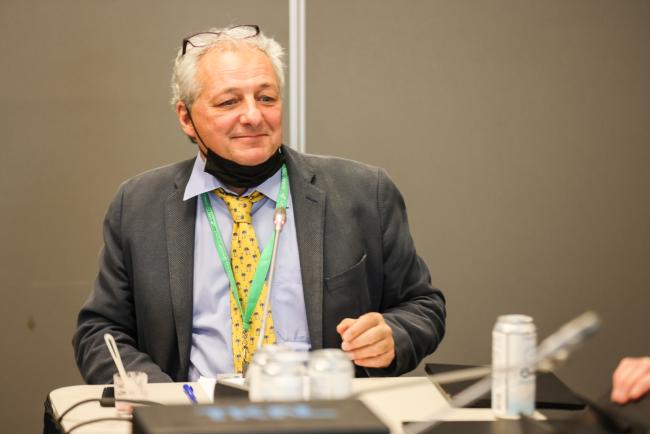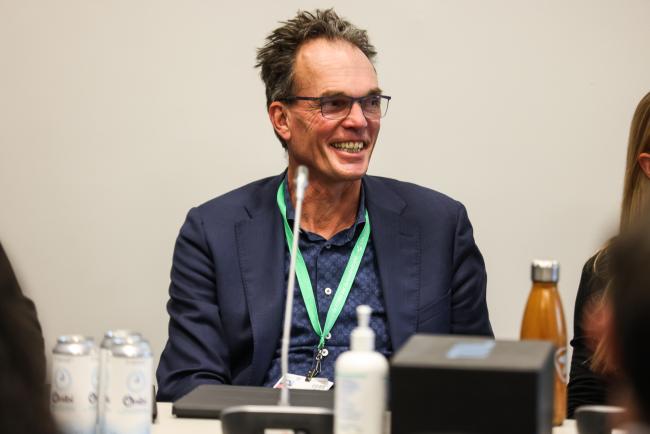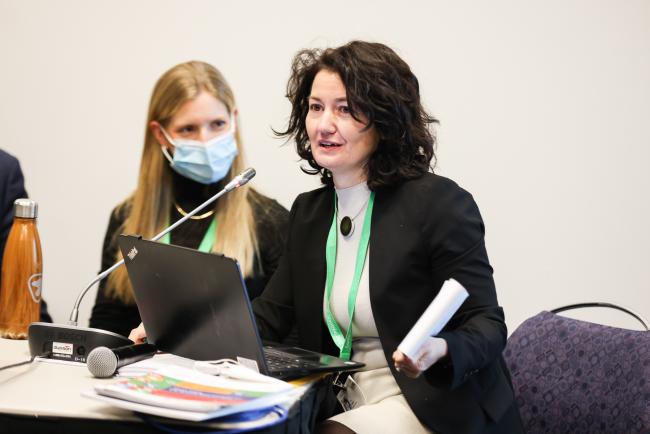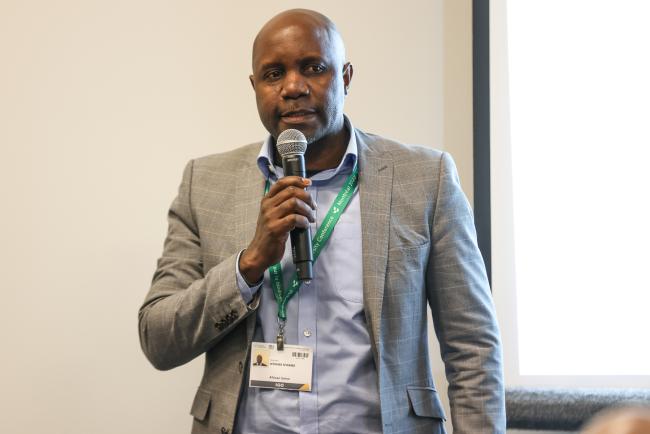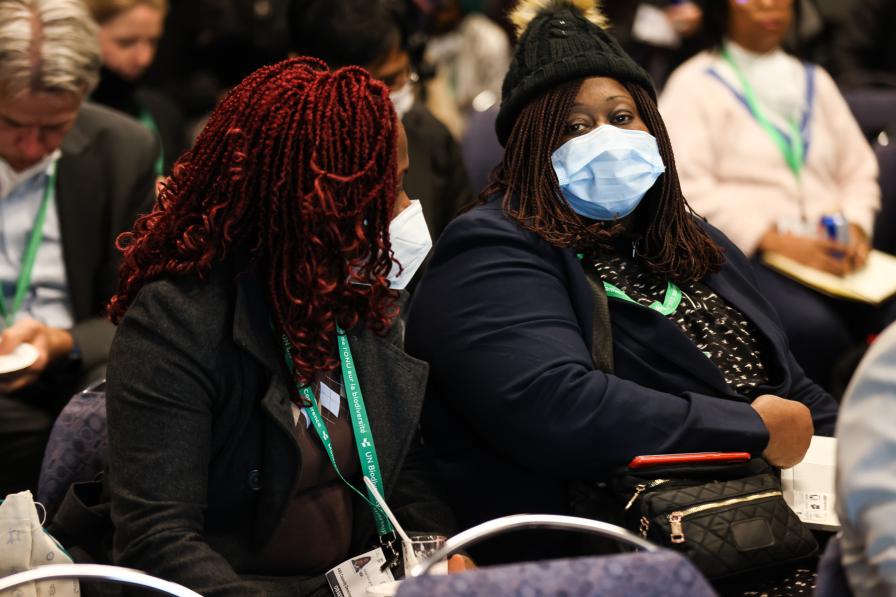About
This side event reflected upon the implementation of the third objective of the CBD and related capacity development challenges under the forthcoming GBF. Speakers elaborated on what, in relation to ABS-related capacity development, should be done better under the future GBF.
The post-2020 global biodiversity framework (GBF) will guide biodiversity policies and programmes in the coming years. Focusing on all three objectives of the Convention of Biological Diversity (CBD), that is conservation, sustainable use, and benefit-sharing, the GBF is expected to unite all actors in fighting unprecedented biodiversity loss. This side event reflected on implementation of the third objective of the CBD and related capacity development challenges under the forthcoming GBF. The focus of the side event was to elaborate on what, in relation to access and benefit sharing (ABS)-related capacity development, should be done better under the future GBF.
Hartmut Meyer, Deutsche Gesellschaft für Internationale Zusammenarbeit GmbH (GIZ), opened the event, with Suhel al-Janabi, ABS Capacity Development Initiative, moderating. Karim Azaiz, German Ministry of Economic Cooperation and Development (BMZ), noted that BMZ has been hosting the ABS Capacity Development Initiative (ABS CDI), sharing that the Initiative is now active in Africa as well as in the Caribbean and the Pacific. He welcomed the CDI’s role in providing a discussion platform for providers and users of genetic resources, and highlighted the increasing importance of broadening stakeholder engagement, especially to include Indigenous Peoples and local communities (IPLCs) and the private sector.
Head of the Nagoya Protocol Unit, Taukondjo Shikongo, CBD Secretariat, highlighted the need to build Indigenous research capabilities. On emerging capacity needs, he underscored the need for making the appropriate links between ABS and the discourse around digital sequence information (DSI), as well as to measure and report on progress towards the monetary and non-monetary benefit sharing of genetic resources. He noted the GBF may enhance cooperation and the mainstreaming of ABS, calling for ABS indicators to be adaptable to national circumstances, while also noting the importance of dedicated finance.
Andreas Gettkant, ABS CDI, presented on lessons learnt and the post GBF-orientation of the Initiative, with a view to addressing future partnerships within the ABS CDI. Recalling the work of the CDI between 2015 and 2022, he highlighted, inter alia: formal cooperation with the African Union Commission; facilitation of regional and international dialogues on emerging issues, including DSI; and the development of bio-cultural community protocols. Looking ahead to the GBF, he said the next phase of the ABS CDI will be to create new concepts around the ABS discourse, including on the capacity strengthening of national and regional actors, such as IPLCs, and partnerships with relevant organizations, including the International Treaty on Plant Genetic Resources for Food and Agriculture (ITPGRFA).
Veronique Koffi Alaki, ABS Focal Point, Côte d’Ivoire, shared her country’s experience in implementing the Nagoya Protocol, including preparing the relevant legislative and regulatory frameworks, developing a permit system, creating a participatory programme, and establishing a scientific committee to advise on ABS.
A panel, moderated by Suhel al Janabi, then addressed what should be invested to better support ABS implementation under the new GBF. Katie Beckett, UK, said that, on implementation of the GBF, there are three focal areas for capacity building: development of national ABS legislation; the application of indicators, currently hampered by the proprietary nature of benefit-sharing agreements; and DSI-related issues.
![]()
Haike Jan Haanstra, the Netherlands, called for investment in the ABS clearinghouse and in DSI and awareness raising. He underscored that capacity building is crucial to enhance the functioning of the ABS system. Mery Ciacci, EU, recalled that the EU is a donor to the ABS CDI, supporting countries in Africa, the Caribbean, and the Pacific. She noted the need to change the approach with respect to how we think about ABS and called for creating standardized procedures for access, and for compliance facilitation towards benefit sharing. She suggested that ABS should be more of a partnership between the North and the South and between users and providers, pointing to discussions on DSI as a step towards this.
In the ensuing discussion, participants: shared their experience in trying to build capacity in local communities with regards to providing access to information on genetic resources; discussed the need for new approaches for ABS; called for regional approaches to promote harmonized ABS systems; and considered the role of governments in assisting stakeholders in the implementation of monetary benefit sharing.
Closing the event, Harsen Nyambe Nyambe, African Union Commission, welcomed continued collaboration with GIZ, noting that biodiversity will contribute towards the realization of the AU’s Agenda 2063. He called for capacity building to target communities to help them in the ABS negotiations.
Organizers: Convened by the multi-donor ABS CDI and the African Union Commission’s Department of Agriculture, Rural Development, Blue Economy and Sustainable Development
Contact: Hartmut Meyer, GIZ, hartmut.meyer@giz.de
More Info: https://www.bmz.de/en/issues/biodiversity/benefit-sharing/abs-initiative-89110
